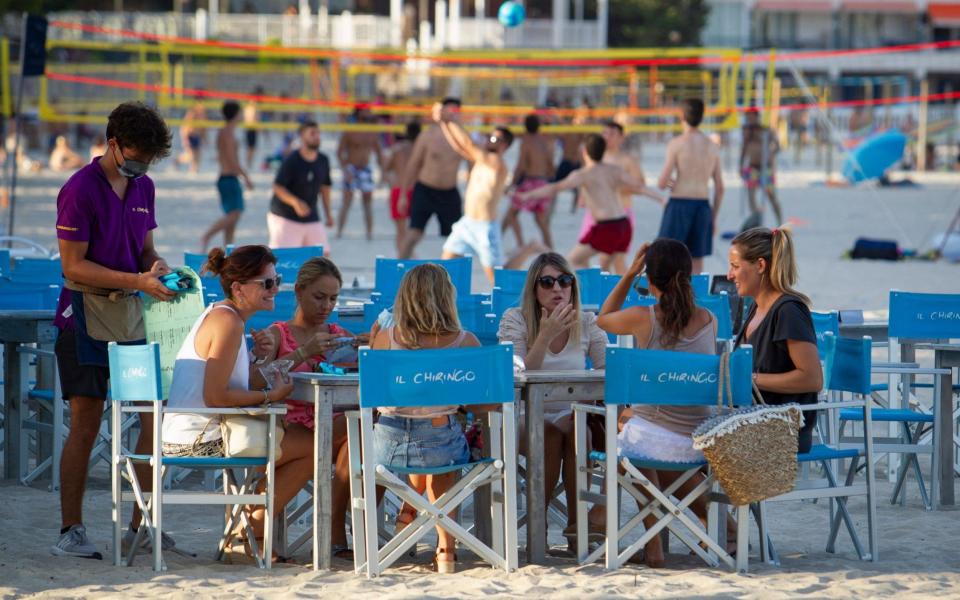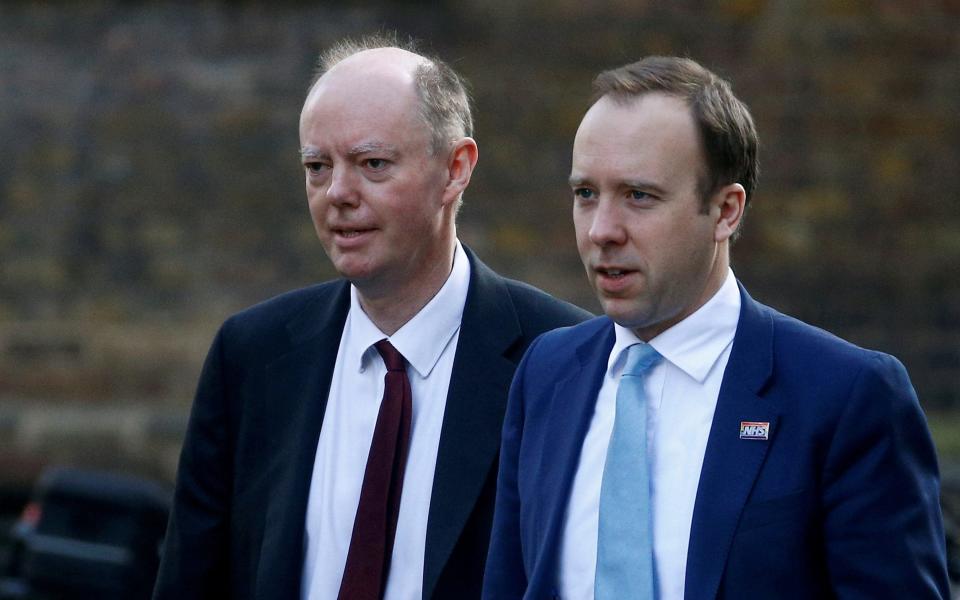'Doing nothing is not an option': The 'significant change' that led to Spain quarantine


Addressing members of the Cabinet’s “Covid-O” committee on Saturday afternoon, Chris Whitty made one thing clear: doing nothing was not an option.
The six senior ministers on the video call had just been given the news they had been dreading - that Britons had started to import coronavirus from a country deemed “safe” by the Government.
Only two days earlier, Spain had been controversially kept on the UK’s “air bridges” list, meaning people arriving from there did not have to go into quarantine.
But the Chief Medical Officer said the picture had worsened considerably over 48 hours. The number of new cases had leapt by 75 per cent and 15 out of Spain’s 19 regions were showing an increase in infections.
The “clincher”, however, was the news that 10 Britons who had tested positive for coronavirus since July 1 had reported visiting Spain in the 14 days before their test.
Although the number is dwarfed by the total positive tests in the UK - still running at more than 700 per day - the number was “statistically significant”, Prof Whitty told the ministers, who decided the risk of more imported infections was not one they were willing to take.
By 11pm on Saturday night, all arrivals in the UK from Spain were being told they had to quarantine themselves for two weeks, plunging the summer holiday season into chaos.
The decision was sudden, but it was not entirely unexpected. For more than a week the news coming out of Spain had been grim. A surge in coronavirus cases in Barcelona had turned into a full-blown second wave across Britain’s favourite holiday destination.
Yet ministers had held firm; a review of destinations on the UK’s “safe list” last Thursday added five more countries, but removed none. Spain, it seemed, was to be considered a quarantine-free destination for at least another week until the next review date came around.
The news came as a huge relief to the 1.8 million tourists booked on flights to Spain in August, as well as to the Transport Secretary Grant Shapps, who was himself about to start a family holiday in the country.
However, on Friday night Matt Hancock, the Health Secretary, told colleagues he was becoming “very concerned” about Spain after the Spanish health ministry shared data that day showing that new cases reported last Thursday and Friday were 75 per cent higher than those reported on the previous two days.
According to Downing Street, the pace of increase, together with the seven-day case rate and the picture of increasing cases across most regions of Spain “represented a significant change”.
In response, Public Health England and the Joint Biosecurity Centre undertook an urgent review and Mr Hancock called a meeting of the coronavirus operations committee - known as Covid-O - for 4.30pm on Saturday.
The 55-minute videoconference began with a presentation by Mr Hancock, aided by Dr Claire Gardiner, director general of the Joint Biosecurity Centre (JBC).
They took the committee members through a series of slides prepared by the JBC, which was set up by the Government to provide independent analysis of disease outbreaks in the wake of the coronavirus pandemic.
Also on the call were Michael Gove, the Chancellor of the Duchy of Lancaster, who chairs the committee; Mr Shapps; Steve Barclay, the Chief Secretary to the Treasury; Priti Patel, the Home Secretary and representatives of the devolved administrations including Wales’s health minister Vaughan Gething and Holyrood’s Justice Secretary Humza Yousaf. Baroness Sugg, the Foreign Office minister, was also on the call.
Mr Hancock explained that although Spain has instituted regional lockdowns, nightclubs remain open in many areas, suggesting Madrid’s restrictions were not as tough as the UK would have expected (nightclubs remain closed in the UK). Of the 281 active outbreaks identified by the Spanish authorities, a third had been traced to social gatherings including nightclubs.

Infection rates in Spain and its islands were on the increase, and the percentage of positive tests being returned in the country were worryingly high.
“Someone pointed out that if we had seen this level of infection in a region of England we would have put it straight into lockdown,” said a source briefed on the call.
The decisive moment, however, came with a slide which showed 10 Britons testing positive for coronavirus after visiting Spain.
“It was a small number but it was statistically significant enough to cause concern,” said one source briefed on the meeting.
For the first time, Britons who had visited a country deemed “safe” by the Government appeared to have brought coronavirus home with them.

Prof Whitty spoke next, though his opinion was a foregone conclusion. Ministers and health officials had repeatedly defended the quarantine policy - which was not in place when Covid-19 was at its peak in the UK - by saying it would be more effective when infection rates in the UK were low and other countries had higher rates.
If the Government was going to follow through on its own logic for the quarantine policy, Spain would have to go back on the quarantine list.
“Ahead of the meeting Chris Whitty had already made it clear that he was going to say that doing nothing wasn’t an option,” said one Government source. “It wasn’t so much that the rate of transmission had increased over the previous three days, it was that there were quite a few cases of Britons coming back from Spain with the virus so that was the clincher.
“That was the reason it all happened so suddenly. There’s no point in taking this kind of action unless it’s immediate, because you risk more people coming back with the virus and spreading it around.”
Another source said: “There was some discussion about imposing quarantine depending on which region of Spain people had been to, and Michael Gove said that from a selfish point of view he should have argued for it to be mainland Spain only, as he was supposed to be going to Ibiza at the end of the week, but he and everyone else agreed it should be the whole country, partly because you can’t stop people travelling between regions while they are there.”
Mr Shapps realised his own department was going to have to announce the closure of the “air bridge” with Spain which he had fought so hard to establish.
“Someone made a joke about Grant’s villa looking lovely,” said a source, “but he was totally on board with the need to impose a full lockdown on the whole of Spain. There was broad consensus on the call about what needed to be done. Michael Gove summed up the position after everyone had spoken, and there wasn’t any dissension.”
News of the decision to re-impose quarantine on arrivals from Spain was announced at 7.30pm, effective from 11pm that night.

 Yahoo Movies
Yahoo Movies 